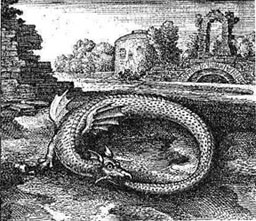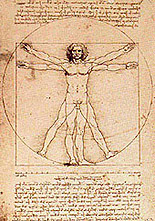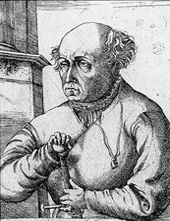ALCHEMY: An ancient and medieval philosophy combining an occult cosmology with practical chemical experimentation. Originating independently in Helenistic Alexandria and ancient China, alchemy remained a legitimate branch of philosophy in Europe and the Islamic world for 1500 years. In its practical aspects, it became the precursor of modern chemistry. Basing their view upon Aristotelian physics, the alchemists sought to isolate the materia prima out of which they believed all other objects in the physical world could be created. Strong Neoplatonic and Kabbalistic influences pervade Renaissance alchemical tracts and a mystical approach based on occult correspondences and 'sympathies' became increasingly apparent. The practical alchemist sought three things: the Elixir of Life, the Universal Panacea, and the means of transmuting base metals into gold. ["A Dictionary of Philosophy" by Anthony Flew (St. Martins Press, NY, 1979)]


